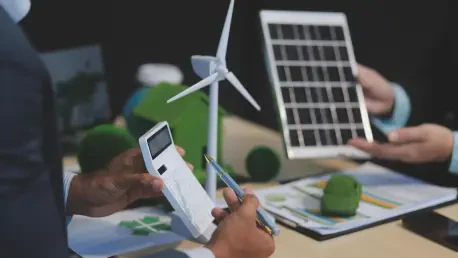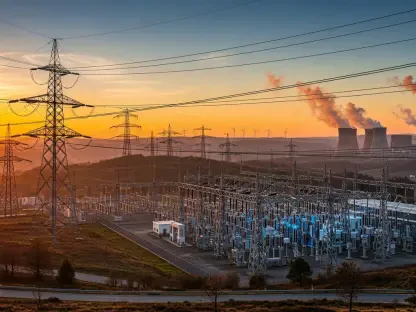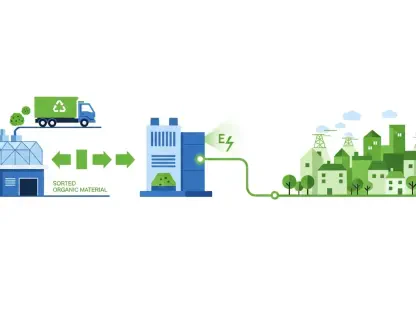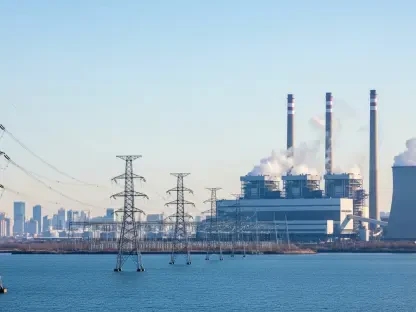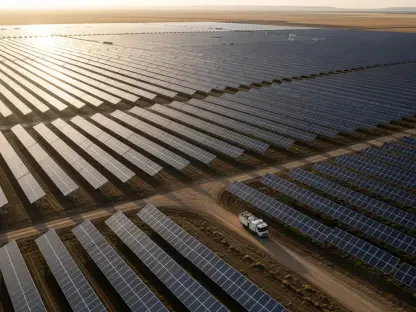Amidst an escalating need for environmental sustainability and energy stability, Congressional Republicans have been rallying for an overhauled strategy that addresses clean energy tax credits. The plan they are advocating has sparked debates among policymakers and industry stakeholders, aiming to strike a balance between fostering economic growth and adapting to rapidly changing market conditions.
The Importance of the Debate
The current discussions stem from legislative efforts to amend the clean energy tax credits originally outlined in the Inflation Reduction Act. Central to the changes proposed by Republicans is the necessity to ensure stability in clean energy investments. The party aims to protect against fluctuating energy costs while paving the way for sustained economic growth within the sector. Such reforms are seen as essential in securing America’s energy independence while simultaneously addressing climate change head-on.
Implications for the Energy Sector
The proposed legislative changes carry significant implications for the energy sector, affecting everything from energy costs to economic growth projections. A major contentious point is the accelerated phase-out of tax credits set to begin in 2028, which would fully sunset by 2032. Proponents argue this will drive innovation and reduce dependency on subsidies, while critics fear it could undermine progress in renewable energy development, leading to increased energy costs for consumers. As fiscal policies evolve, the energy market stands at a crossroads, where investor confidence and economic growth are delicately interlinked with legislative decisions.
In line with these changes, discussions extend to the intersection of fiscal policies and clean energy technologies. Innovative financing strategies are emerging as central to navigating these complexities, reflecting a wider trend of governments and private sectors collaborating to redefine pathways toward a sustainable energy future.
Legislative Proposals in Focus
Among the proposed reforms are critical measures such as phase-out schedules, which some regard as a prudent fiscal approach, while others view them as potentially disruptive. Notably, the transferability mechanism within these proposals has caught attention. By allowing flexibility for long-term planning, such mechanisms promise stability and predictability for investors, albeit sparking debates on their potential implications for market fluidity. Republican lawmakers also scrutinize the foreign entity of concern provisions, designed to restrict supply chain transitions involving foreign entities deemed risky. Advocates say these regulations are overreaching, calling for modifications that provide industries with leeway to adapt without compromising national security.
Another key area of debate lies in differentiating between service readiness and start construction standards for projects. The GOP suggests shifting to a start construction benchmark to ensure that projects, particularly those focused on renewable energy, progress within the proposed phase-out timelines and economic frameworks.
Voices from the Aisle: Stakeholder Perspectives
The legislative push has garnered varied opinions from political leaders, experts, and industry developers. Representative Jen Kiggans, a prominent Republican voice, emphasizes strategic policy shifts that align with national interests and sectoral growth. Meanwhile, policy experts and economists highlight the potential risks and benefits of the proposed legislative changes, offering projections on how these might reshape the landscape of American energy.
Industry developers express concerns over the feasibility of planned projects under the suggested measures. The possibility of deterrents to private investment and escalated costs could, they argue, stymie innovation and job creation, slowing the pace of the energy transition that is vital for the country’s future.
Navigating the New Legislative Landscape
For investors and businesses navigating the evolving tax credit landscape, strategic recommendations are crucial. By leveraging proposed legislative provisions, stakeholders can sustain growth amid market transitions. Proactive adaptation strategies include aligning investment portfolios with new policies and utilizing advanced financial tools to mitigate risks. Businesses are encouraged to harness these opportunities, ensuring that they remain competitive and continue to drive the clean energy agenda forward.
In retrospect, the Republican push for revamping clean energy tax credits represents a pivotal moment for the intersection of policy and industry. These discussions highlight a broader commitment to fostering American job growth and managing energy costs sustainably. As businesses and investors reflect on strategic adaptations, the industry eyes future legislative developments with anticipation, acknowledging the era’s potential for transformative impacts.
